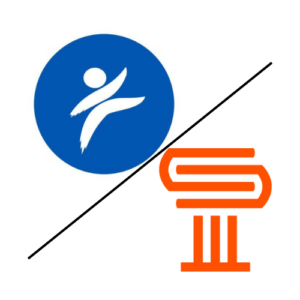Training Leaders in East Africa
May 26, 2023 2024-09-25 15:28Training Leaders in East Africa
Building Biblical Leadership and Literacy Capacity in East Africa
Pillar Seminary and Compassion International, Kenya are releasing children from poverty in Jesus' name.
Background
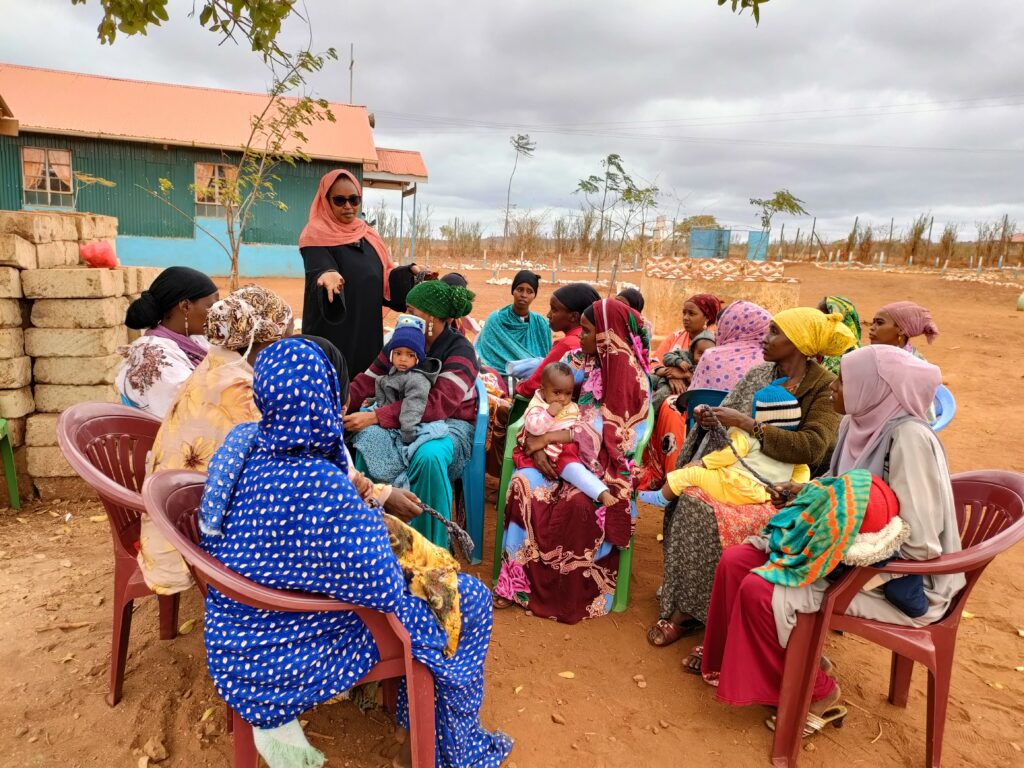
Program participant Galmo K. serves women and children in Kenya in 2022.
A Strategic Partnership for Holistic Gospel Impact
In 2022, representatives from Compassion International, Kenya contacted Pillar Seminary’s leadership team with a simple request: train over 400 leaders to lead their ministries with the Bible as their primary textbook. Compassion International is dedicated to releasing children from poverty in Jesus’ name, and the ministry leaders in question were employed by Compassion’s partner churches on the ground in Kenya. Pillar’s leadership saw the possibility for a multiplicational strategy in this partnership to impact not only these leaders, but the 137,000+ children they serve through Compassion’s church partnership program. Pillar’s leadership understood that God was asking the seminary to follow through on its conviction that the Scriptures, when read well, lead Jesus’ followers to take special care of the oppressed, the disenfranchised, the poor, and the vulnerable. The potential for Pillar to be used by God to make a holistic gospel impact in east Africa was too tempting to pass up.
Pillar rose to the occasion and offered a completely online course on biblical leadership principles with Dr. Donnell Moore during the Fall of 2022 to 10 key ministry leaders identified by Compassion. This initial testing ground would become the basis for a strategic partnership between Compassion International and Pillar in the coming years.
Project Development and Formalization: Biblical Leadership Meets Biblical Literacy
After the initial test course in 2022, Pillar assessed and strategized to increase the effectiveness of the training provided. The learners expressed great appreciation and satisfaction with the course, but both Compassion and Pillar wanted to press on to make the training even better. A needs assessment was conducted by Pillar staff in 2023 to determine the training priorities for Compassion’s ministry partners on the ground. The needs assessment revealed three priorities for Compassion’s leadership and ministry leaders:
- Biblical literacy and interpretation
- Disciplemaking and personal transformation
- A contextualized, biblical understanding of poverty, wealth, possessions, and the historic Christian gospel
In line with the needs assessment, Dr. Scott Booth was brought onto the project to support the course design and inject needed training in biblical literacy. The beta test of the course was drafted in 2023 alongside a memorandum of understanding which formalized the partnership between Compassion and Pillar. The first phase of this updated course will be offered to 17 ministry leaders in the Fall of 2023 with plans to expand the cohorts and overall scope of the project pending achievement of stated outcomes.
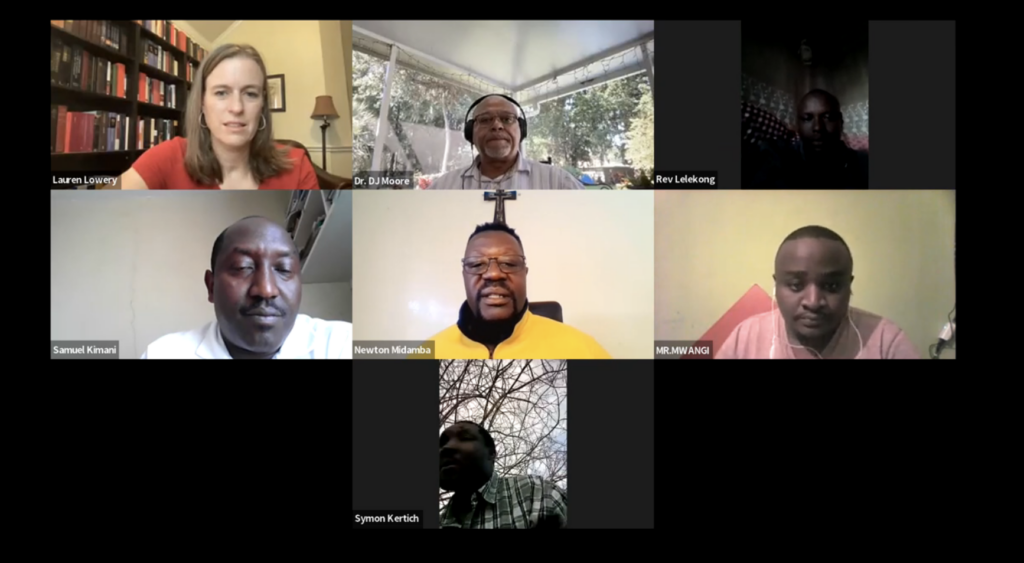
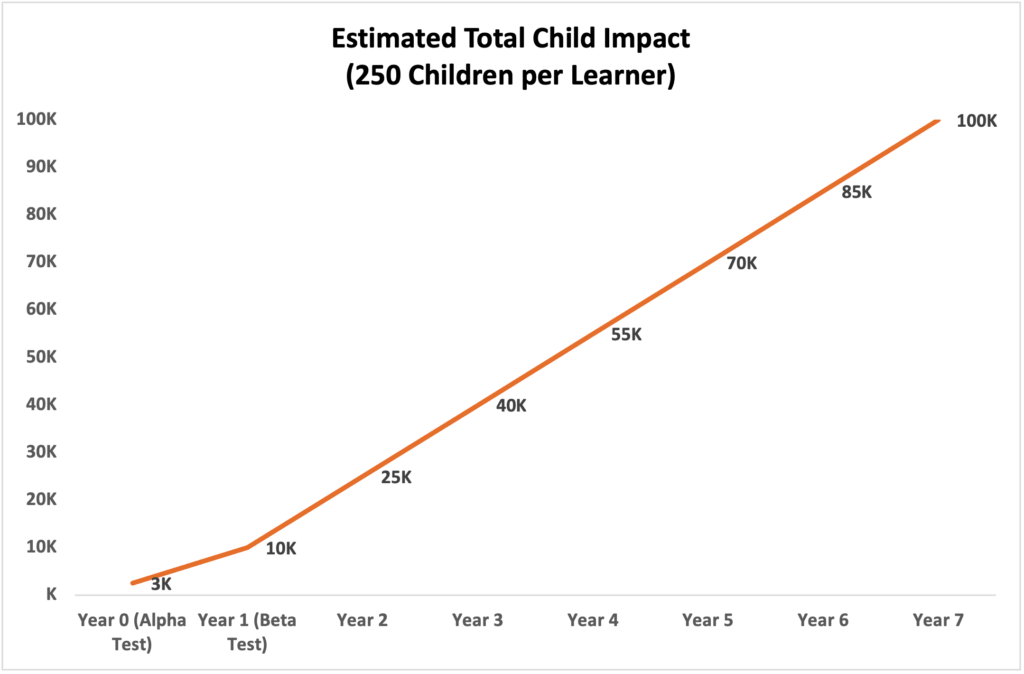
The Next Seven Years: Reaching 100,000 Children with the Gospel of Jesus Christ
As Pillar and Compassion plan for the future, the goal of the project is to impact 100,000 children through biblical literacy and leadership training of over 400 key ministry leaders in Compassion’s partner churches in Kenya.
Project Description
About Kenya
Kenya’s 2023 population is estimated at just over 57 million (CIA World Factbook), with almost 30% of the population living under the global poverty equivalent of 2.15 USD per day in 2015 (World Bank). Less than 30% of the nation’s population are internet users. Life expectancy at birth in Kenya is 70 years, ranking 174th of 227 nations (CIA World Factbook). In terms of adult literacy (age 15+), 83% of the population can read and write. Roughly 70% of the country’s population live outside urban centers. Kenya’s economy is labeled “developing” by the United Nations (UN World Prospects 2022). The gender inequality index, which measures the disparity between the rights of men and women in an given country, demonstrates that women have roughly 81% of the legal rights of men in Kenya, with women and girls remaining vulnerable to “poverty… gender-based violence, harmful cultural attitudes, and beliefs” (USAID). Even so, Kenya is participating in the United Nations’ sustained development program and is currently outperforming neighboring nations in several arenas (UN; World Bank).
The Need is Great
While, in the West, the appropriate way to fast as a spiritual discipline is a subject of scholarly debate, in Kenya, it is a matter of life and death. Lack of biblical literacy and holistic understandings of the gospel of Jesus Christ is leading to abusive church leadership and sub-Christian cults developing in east Africa. “Kenya cult death toll surpasses 200, more than 600 people reported missing” and “Kenya cult: Children targeted to die first, pastor says” are just two news headlines from the Spring of 2023. In Kenya a recent popular cult has encouraged its followers to starve themselves to death through fasting in order to meet Jesus. Biblical literacy and leadership training can help solve this problem and others like it by educating ministry leaders to turn to the Scriptures, rightly understood, as their primary disciplemaking textbook.
Beyond this extreme example, the needs assessment conducted by Pillar staff revealed concerns among Compassion leaders regarding a biblical understanding of poverty and wealth. When ministry leaders are confronted with personal poverty, it can lead to temptation to mismanage ministry resources. By turning to the Scriptures and reading them aright, ministry leaders serving the most vulnerable populations in Kenya will know and be encouraged to follow Jesus’ own instructions regarding wealth and poverty.
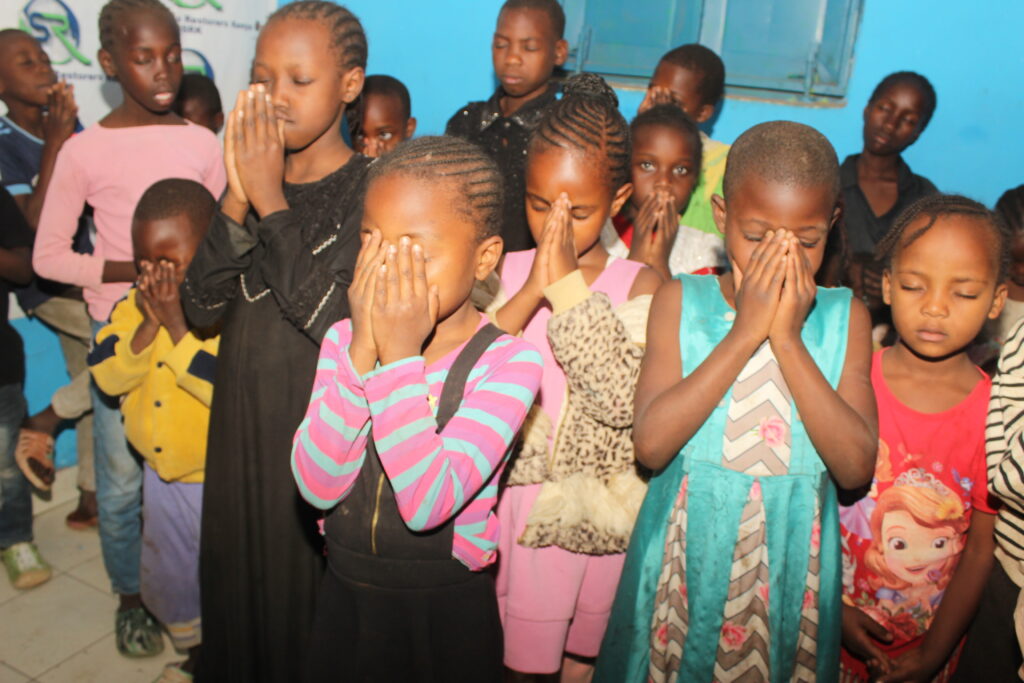
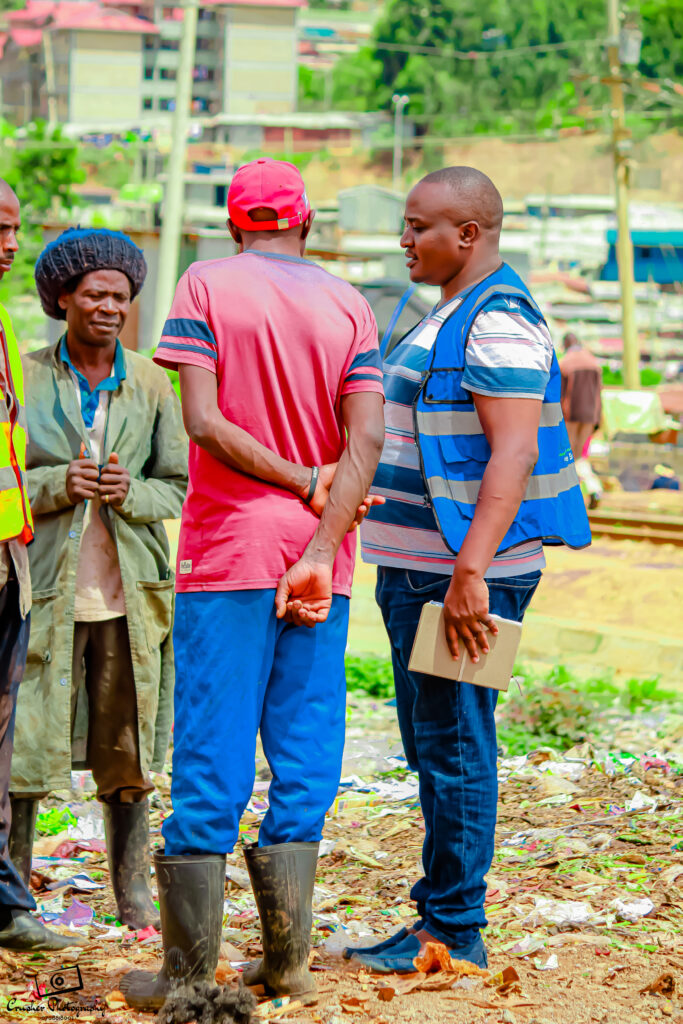
The Theological Context of East Africa
Christianity has experienced tremendous growth over the past century in east Africa. In the early 20th century, Christians represented less than 0.5% of the overall Kenyan population. Today, estimates of self-identifying Christians range between 83% and 86% percent (Zurlo, 2022; CIA World Factbook). As in the early church, rapid growth has overrun the ability of qualified leaders who have been discipled in the historic Christian gospel to lead with the Bible as their central textbook. While the social and economic conditions are improving in Kenya, continued experience of poverty can lead to several negative outcomes among ministry leaders:
- An economic- or prosperity-based misunderstanding of the Christian gospel
- An abusive approach to ministry
- A temptation to mismanage or misallocate ministry finances
- Ministry burnout resulting from extreme overwork without compensation
Pillar’s Biblical Leadership Bootcamp will address each of these concerns directly through the training outcomes and interventions described in the project details below.
Transformational and Contextualized Theology
Rogate Mshana describes prosperity theology as still growing on the African continent. This theology “portrays people in poverty as being so as a result of their sins” (Mshana, 2013). When approached within their historical and cultural context, the Christian Scriptures address this false teaching directly. Therefore, not only will participants in Pillar’s Biblical Leadership Bootcamp learn about how the Scriptures treat issues of poverty, justice, and finance, they will understand the broader implications of Jesus’ call to disciplemaking to include avoidance of corruption and service to the most vulnerable in their own contexts. Leaders with the ability to read the Scriptures well, who are confronted with God’s perspective on poverty, wealth, and the gospel, would avoid being drawn in by prosperity theology.
Collaborative Training Model
Jesse N.K. Mugambi (2013) has rightly noted that Africa’s need for theological education is not ultimately solved by importing training from abroad. In light of this, Pillar has partnered closely with Compassion’s leadership team to assess the true needs of the target population and implement a course of training that will become self-sustaining. The needs assessment conducted during the project development phase in 2022 and 2023 included participant surveys, focus groups, and interviews with key leaders. The data gathered from this assessment are directly impacting the development of the Biblical Leadership Bootcamp that will be implemented in 2023. The efforts of Pillar’s collaboration with Compassion leaders on the ground in Kenya will result in an appropriately contextualized learning experience for program participants.
In addition to the needs assessment conducted during the development phase of the Biblical Leadership Bootcamp, ongoing assessment of the training will take place in order to monitor the effectiveness of the training and adjust for issues of appropriate contextualization.
The Biblical Leadership Bootcamp will utilize a “train the trainer” model to create a self-sustaining, contextualized model of leadership development for key ministry leaders in Kenya. The planned first phase of the Biblical Leadership Bootcamp (Fall of 2023) will involve training and discussion groups led by Pillar personnel. In the planned second phase of the training (Spring of 2023 and beyond), program graduates will participate in instruction and discussion group leadership, with the goal of a complete handoff of responsibilities by 2030.
Project Details
Pillar Seminary is dedicated to reimagining seminary for anyone, anywhere, by training leaders in the classroom, church, and kingdom to become skillful interpreters of the Scriptures and biblical leaders in the own contexts. Pillar and Compassion have determined to labor together for their mutual benefit and the effective execution of complementary missions for the sake of the gospel of Jesus Christ and the establishment of his kingdom through local churches. This will be accomplished through a 12-week, flipped classroom training course overseen by Pillar faculty and staff in partnership with Compassion’s leadership.
The details of this project, including participant selection criteria, program outcomes, and planned interventions are provided below.
Through Pillar’s Biblical Leadership Bootcamp program, program participants (“learners”) will be identified by Compassion Kenya’s leadership team. All learners must meet the following criteria prior to selection:
- Service in an an official capacity as a ministry leader or child development worker in a Compassion Partner Church.
- Endorsement by their church, denomination, or church partnership committee.
- English literacy and fluency
- Access to sufficient technology (device and internet) to enable full course participation
- Ability to dedicate up to 5 hours per week to course activities
- Completion of a primary education
- Ability to pay or fundraise up to the equivalent of $25 USD in support
Participant vetting is overseen by Compassion’s Kenya leadership. Pillar will train up to 15 participants in Fall of 2023 and 30 in Spring of 2024.
Compassion estimates that there are over 400 ministry leaders who will meet these criteria and receive training over the course of the partnership. Each ministry leader serves roughly 250 children. The overall project goal is to impact over 100,000 children by training 400 key ministry leaders to demonstrate the outcomes described below.
At the completion of the Biblical Leadership Bootcamp, learners will:
- Demonstrate a basic ability to interpret selected passages within their historical and cultural context.
- Use the Bible as a primary tool for disciplemaking
- Articulate a contextualized and biblical approach to
- Poverty
- Wealth
- The historic Christian Gospel
Attainment of the outcomes for this population is monitored using indirect (self-reported surveys and interviews) and direct (activity submissions and exams) measures as described in the project assessment plan and logic model.
At Pillar Seminary, learners are challenged to read the Bible as an ancient text with abiding relevance for their ministries. A nuanced and holistic understanding of the gospel alongside Jesus’ instructions on fasting and other spiritual disciplines, in the case of this Kenyan cult, could have saved lives.
- Asynchronous learning activities (workbook, lecture content, readings)
- Synchronous class discussions (10 sessions)
- Text to ethical praxis (problem solving) instruction
- Cohort learning
- Pillar staff support (Pillar Institute Coordinator; pending grant funding)
- Access to the Global Digital Theological Library
Supporting Evidence and Documentation
The supporting evidence and documentation for this project are provided below. Many of these documents have been provided as part of the narrative description of the project, above.
- Syllabus (currently in development)
- Explanation of Instructional Model
Further Information
For further information, please contact Pillar Seminary’s grant administrator for this project, Lauren Lowery, or Pillar’s Vice President for Administration and Finance, Andrew Cress, using this form.
The program contact with Compassion International Kenya is Newton Midamba, Senior Manager of Partnerships.
